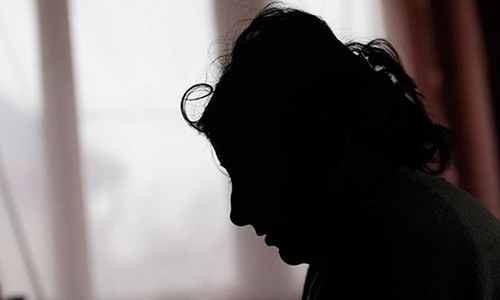ISLAMABAD: The Supreme Court on Tuesday ordered formation of a medical board of renowned psychiatrists to re-examine death-row inmate Imdad Ali, who is a patient of paranoid schizophrenia, to determine since when the convict has been suffering from the disorder.
“This is a delicate matter and affects the future since the state has to ensure that every convict awarded capital punishment should not be suffering from any physical or mental health, rather he should be normal,” observed Justice Manzoor Ahmad Malik, who was heading a five-judge bench that had taken up petitions of the inspector general prisons of Punjab and Safia Bano, wife of Imdad Ali, who sought review of the Sept 27 death sentence awarded to the 50-year-old inmate.
A separate case of Kaneez Bibi had also been fixed before the court.
The medical board would furnish its final report to the apex court in two months, the court order said. It directed that when the matter would be taken up again, a member of the medical board should be present in the courtroom.
The same order will also apply to Kaneez Bibi who had approached the SC with a plea that she was also suffering from the same disease — schizophrenia.
Kaneez Bibi is accused of killing two sons of Khan Mohammad — a father of five children — in July 1989 in Kamalia tehsil. On the incitement of Kaneez Bibi coupled with a marriage proposal, Khan Mohammad had also killed his wife and three daughters.
On Tuesday, when Advocate Syed Iqbal Hussain Gillani, representing the wife of Imdad Ali, requested the court to order shifting of the patient to any mental hospital from the jail, Justice Ijazul Ahsan, a member of the bench, cited a recent visit of the apex court judges to a mental health facility where they found the conditions of the hospital really bad.
“We have to decide whether the execution of an inmate will remain relevant if the convict had developed the disease two years before his execution date,” Justice Malik observed.
On Nov 18, 2016, an SC bench, headed by then chief justice Anwar Zaheer Jamali, had ordered the constitution of a three-member medical board of renowned psychiatrists to thoroughly examine Imdad Ali and submit its findings after complete medical assessment of the patient.
The same bench had on Oct 31, 2016 stayed the execution of Ali by suspending the second black warrant issued for his execution. The earlier warrant was issued on July 26, 2016. The president had already rejected Ali’s mercy petition on Nov 17, 2015.
Safia Bano had filed the appeal against the Aug 23, 2016 rejection by the Lahore High Court’s Multan bench of upholding the death sentence awarded by the trial court.
Earlier, the Supreme Court had ruled that mental sickness like schizophrenia did not make irrelevant the sentence of death because such psychiatric disorder was not a permanent disease and curable with proper treatment.
“Schizophrenia is not a permanent mental disorder, rather imbalance, increasing or decreasing depending upon the level of stress,” the apex court had held, adding that in recent years the prognosis of ailments like schizophrenia had been improved with drugs by vigorous psychological and social managements and rehabilitation.
In his review petition, the IG prisons pleaded that the court judgement had placed fetters on the definition of schizophrenia contrary to the universally accepted medical definition in terms of ‘mental disorder’ as envisaged by the Mental Health Ordinance, 2001, Punjab.
“Across the medical jurisprudence, paranoid schizophrenia is classified as a chronic and permanent mental disorder affecting cognitive functions and with poor prognosis,” the review petition argued. It said the patient’s jail medical records reflected that he had consistently displayed symptoms of schizophrenia and was not showing signs of improvement, thus he had active psychotic symptoms.
Moreover, the Sharia prohibited execution of a mentally challenged prisoner, the petition said, adding that the view was endorsed by Islamic jurisprudent Allama Ibne Abideen in his celebrated work — Radd al-Muhtar ala al-Dur al-Mukhtar.
Safia Bano, in her review petition, pleaded that the medical records reflected that Imdad Ali had consistently displayed symptoms of schizophrenia he was diagnosed in prison, hence he was subject to the relevant procedures under the Pakistan Prison Rules, 1978 that asked for transfer of such patients to a mental hospital.
Published in Dawn, October 24th, 2018
Download the new Dawn mobile app here:














































